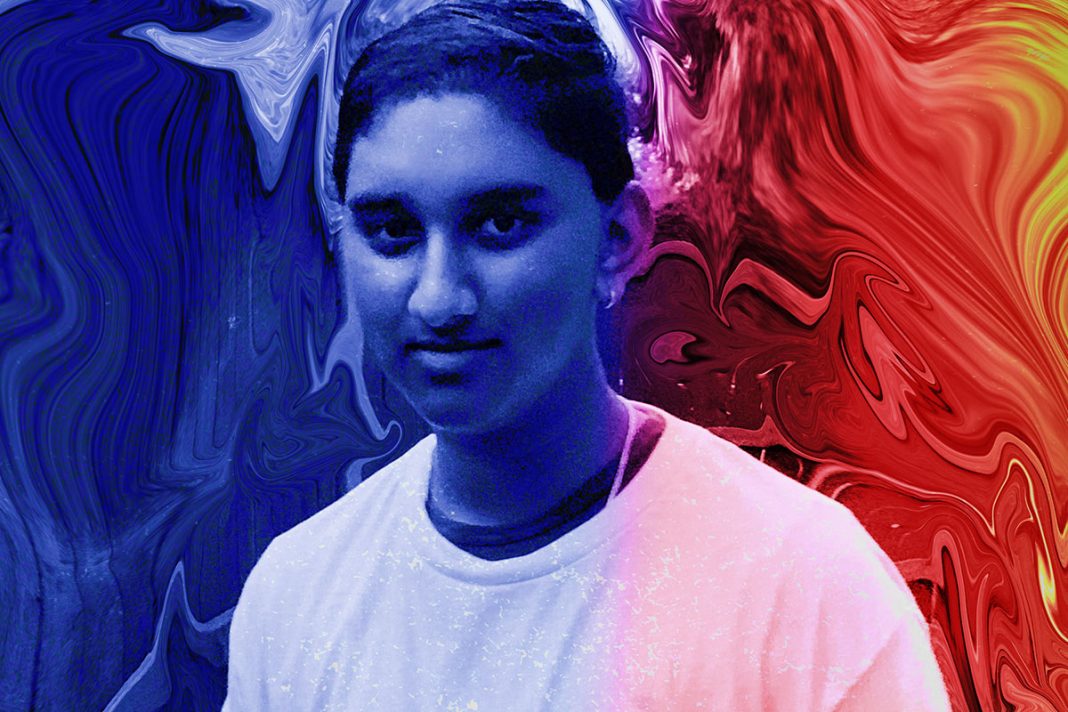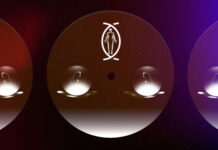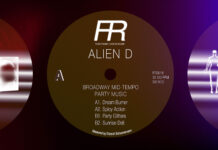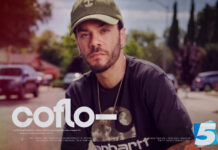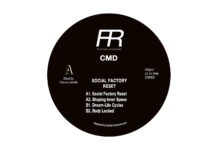Listen to the records of Gautham Garg and you’ll hear the type of spirited, authentic techno that has attracted generations of electronic music producers from the American Rust Belt.
Under aliases Cratan and Decoder, Gautham has quickly established himself as an artist with five releases in 2021 alone, including the Dark Shape album on Jeff Mills‘ Axis Records and Boulder on Fixed Rhythms. By sound alone you would never guess — and if we hadn’t asked him to teardown the rugged tracks on Boulder, we never would have known — he’s likely among the youngest artists ever profiled in 5 Mag.
That’s not why you’re reading this: his records bang, with a hypnotic, slightly off-kilter but virulent strain of techno that’s been favored by some of the best DJs in the scene. We were pleased to talk with Gautham about how he makes them.
What initially drew you to this kind of underground techno?
My whole life, there’s always been some sort of electronic music present, whether it be the Euro dance and Italo Disco my mom played when I was young, or the EDM I used to listen to a lot in middle school. I think being on my computer pretty much all the time helped a ton, and spending lots of time online just falling into rabbit holes of random things. I remember my first exposure to techno was through a random link I saw someone post of a track by Tensal called “Imperia.” When I heard that track, my reaction was less like, “Oh this sounds cool, I’m gonna go check out more of it,” and more like “Where has this kind of music been my whole life?!” Definitely a life changing experience for me.
Listening, it sounds like it’s influenced by the kind of records Woody McBride/ESP, or Hyperactive, or Fanon Flowers would have made. This isn’t the sort of thing most people stumble across. How did you find them?
Kind of like I mentioned above, just being extremely nerdy and having a lot of free time led to me just kind of learning about the history of the genre as a whole and whatnot. I’ve been playing drums since I was 5, and a lot of the older ’90s techno is pretty much just percussion loops, and a lot of guys like Fanon Flowers and Jay Denham had tracks like that which really appealed to my tastes. They’re definitely big influences on my music.
 This was originally published in #Praise: 5 Mag Issue #194 with Norm Talley and Upstairs Asylum, Lea Lisa, Cratan/Decoder and more. Support 5 Mag by becoming a member for as little as $1 per issue.
This was originally published in #Praise: 5 Mag Issue #194 with Norm Talley and Upstairs Asylum, Lea Lisa, Cratan/Decoder and more. Support 5 Mag by becoming a member for as little as $1 per issue.
Jeff Mills’ Axis Records has ramped up releases in the last year, and one of their best releases was an album called Dark Shape from you under your Decoder alias. How did he hear about you? How did the album release come about?
A friend of mine and I were chatting online and he suggested I email some demos to Axis, and I guess Jeff happened to like the music! It was a lot more straightforward than I expected. I sent the demo as an album with a concept based around a dystopian future. After we sorted out details, Jeff had me go more in depth with my story and write more about what each track represented, and from there the album was pretty much ready.
How is the sound as “Cratan,” like on Boulder different from your releases as “Decoder”?
The whole Cratan project in general is geared more towards harder dancefloor-oriented techno, while Decoder is more towards sci-fi, minimalism, and term I like to call “all purpose techno.” They both definitely have some distinctions but I’d say the most noticeable one would be the intensity, as Cratan tracks are heavily inspired by a lot of music that was put out in the late ’90s.
What does your basic studio set up look like? What gear and tools are you using? What DAW are you using?
I have a TR-09, which is my absolute favorite piece of hardware. I do have some other synths, but I do pretty much all my producing in the box with FL Studio. Usually it’s because I’m too impatient to take the time to get my hardware all set up and whatnot, as I like to just get my ideas down as quick as possible as to avoid forgetting them. In FL I don’t really use much, just drum samples and a couple really basic stock synths. I think it’s more about how you use what you’re given to create something as opposed to constantly looking for more things to add to your toolkit.
I know FL Studio is used for a lot of hip hop and EDM, but I’m not sure it’s come up in an interview I’ve done. How were you introduced to it and what do you like about it?
I was actually introduced to it because a video game music composer I used to follow called Waterflame used it and that was my first exposure to it. After I installed it I never bothered leaving, the whole interface just works really well with my workflow. I do appreciate a lot of other DAWs but I don’t see myself leaving FL for a long time.
Was there anything in particular you leaned on for making the tracks on Boulder?
For Boulder, I definitely indulged myself in using the plugin Diva, as it’s got one of my favorite filters for doing frantic sounding arpeggiations and whatnot. It’s also got a super sick noise filter which adds a lot of bite to the sound.
There’s more inside 5 Mag’s member’s section — get first access to each issue for only $1/issue.



